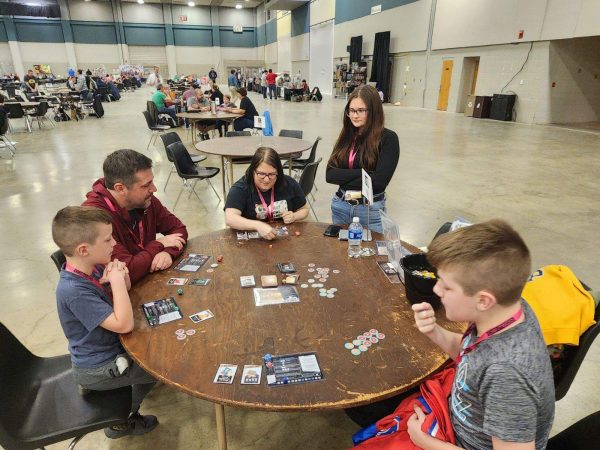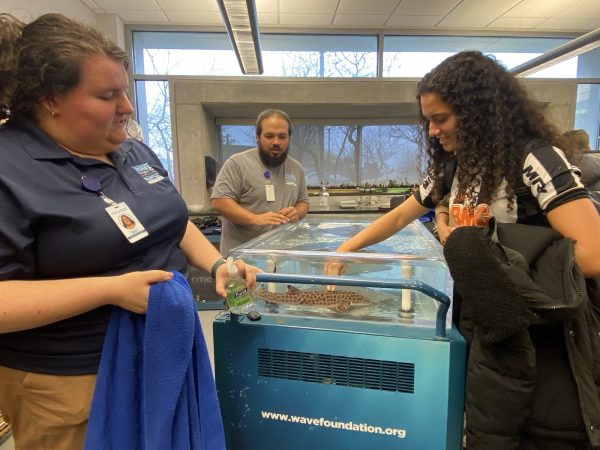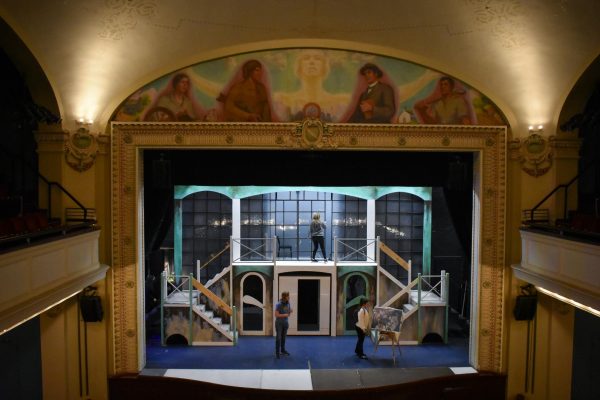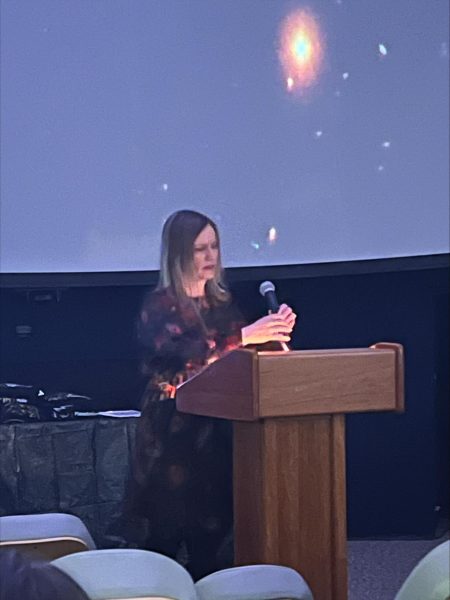Recent media grads give advice to journalism students
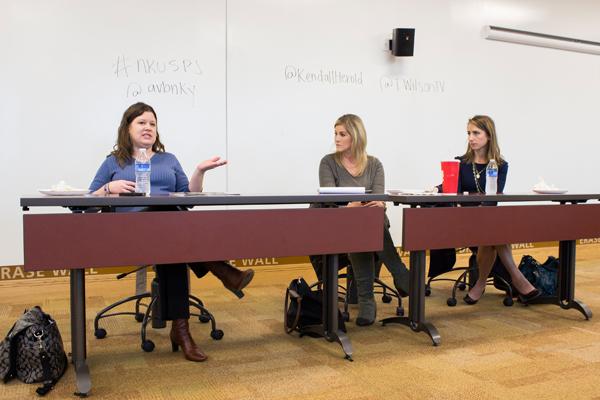
Tiffany Wilson, Kendall Herold, and Amanda VanBenschoten spoke to students at the latest SPJ event.
Journalism and media students should take advantage of all the opportunities available to them while they’re in college, according to three recent grads who visited Northern Kentucky University on Friday, Nov. 22.
Those opportunities provide the experience and connections students will need to find professional jobs after graduation, the speakers said as part of the program “Starting Your Career in Media: Advice from Recent Grads.” More than 30 students and faculty attended the discussion, sponsored by the NKU and Cincinnati Pro chapters of the Society of Professional Journalists. Here are the top five pieces of advice from the speakers – Tiffany Wilson, anchor for “Good Morning Cincinnati” at Local 12; Kendall Herold, reporter for WCPO-TV; and Amanda VanBenschoten, columnist for The Kentucky Enquirer
1. Get an internship – or three
“Internships are so critical in this field. In classes we try to replicate the experience, but it’s a totally different level out there,” said Tiffany Wilson, anchor for “Good Morning Cincinnati” at Local 12. Wilson said internships provide professional connections, as well as experience.
Amanda VanBenschoten, news columnist for the Kentucky Enquirer, said she got great experience as an editor for The Northerner student newspaper and during a newspaper internship while an undergraduate at NKU. But, in hindsight, she wishes she’d done even more internships – so she could have explored more media options and learned new skills.
“You can never have too many skills,” VanBenschoten said.
Kendall Herold, reporter for WCPO-TV, echoed the internship advice. While she was a student at Western Kentucky University, she won an internship at Fox News in New York. She recalls it as a great experience, but believes an additional internship at a local television station would have been beneficial, as well.
“Go for that national internship, but the local one is something you can’t beat,” said Herold.
All three panel members advised students to be willing to work any crazy hours and take on any task once they get an internship.
“You can’t replace that experience,” VanBenschoten said. “Learning what you can and can’t do now is what it’s about.”
2. Unpaid internships can be worthwhile
All three panelists agreed that taking advantage of any internship is worth it, even if it’s unpaid.
“Yes, go for the unpaid hands down,” Wilson said. “You still have to pay for things, but it’s worth every penny.”
Herold added that “hopefully by now you know that this business isn’t about money” and said it’s always worth the experience.
3. Establish your identity outside of the newsroom
Building a personal brand with a social media following makes you more valuable to the news organization, the journalists agreed.
“You are not interchangeable when the viewer’s get to know you,” Wilson said.
Wilson cited her fellow morning anchor Bob Herzog as an example of effective branding. He’s built a following through hosting a feature called “Dance Party Friday” for the station. When you are coming into people’s homes every morning they need to feel like they know you, she said.
But personal branding isn’t exclusive to broadcast journalism. VanBenschoten said that now more than ever because of social media, print journalists need to build relationships with their community just as much.
“It used to be only TV had identity and brand because you saw them every day. Social media has changed the game,” VanBenschoten said. “People know your voice as a writer and more of who you are.”
All three speakers advised students to remember that everything you post can be public. Show your personality but always remember to be a constant professional, they agreed. Wilson stressed that it’s still okay to have fun. To which Herold responded with a laugh, “but we’re not doing keg stands.”
4. Practice makes perfect
“You have to be able to run and gun,” Wilson said. “The future of the business is always changing.”
Both Wilson and Herold said that if you want to work on air, you must practice being on camera. The more you practice the better prepared you’ll be for the real thing.
VanBenschoten said that generally newsrooms are staffed so knowing how to do a variety of tasks is beneficial.
All three panelists said the more you can do and the more willing you are to do will make you stand out when you’re looking for a job.
Once you’ve gotten that practice, get feedback — not just from fellow journalist but from friends and family as well.
“They’re usually the most honest, and they are your viewers,” Wilson said.
5. Things they wish they’d known before
Wilson and Herold both said they’d wished they’d known more about how flexible they’d need to be in broadcast media careers. They said that timing is everything, and patience is key.
Moving is something that’s almost a guarantee, especially in broadcast. Herold and Wilson said that at times the industry can be rough on your social life, and things can change at a moment’s notice.
“Friends and family are either going to be understanding or going to learn to have to be,” Herold said.
Wilson said that the trade-off for losing time with friends and family is well worth it because journalists can make a difference in people’s lives.
“Typically when we do stories, we’re on someone’s best day or worst day,” Wilson said. “So there’s a sense of bonding that’s immediate when you’re talking to them.”
VanBenschoten added that journalists have a responsibility to tell a person’s story the best they possibly can.
So the business may be hard, but once you get that start you can go great places.
Wilson said, “Put your foot in the door; know where you want to go.”




